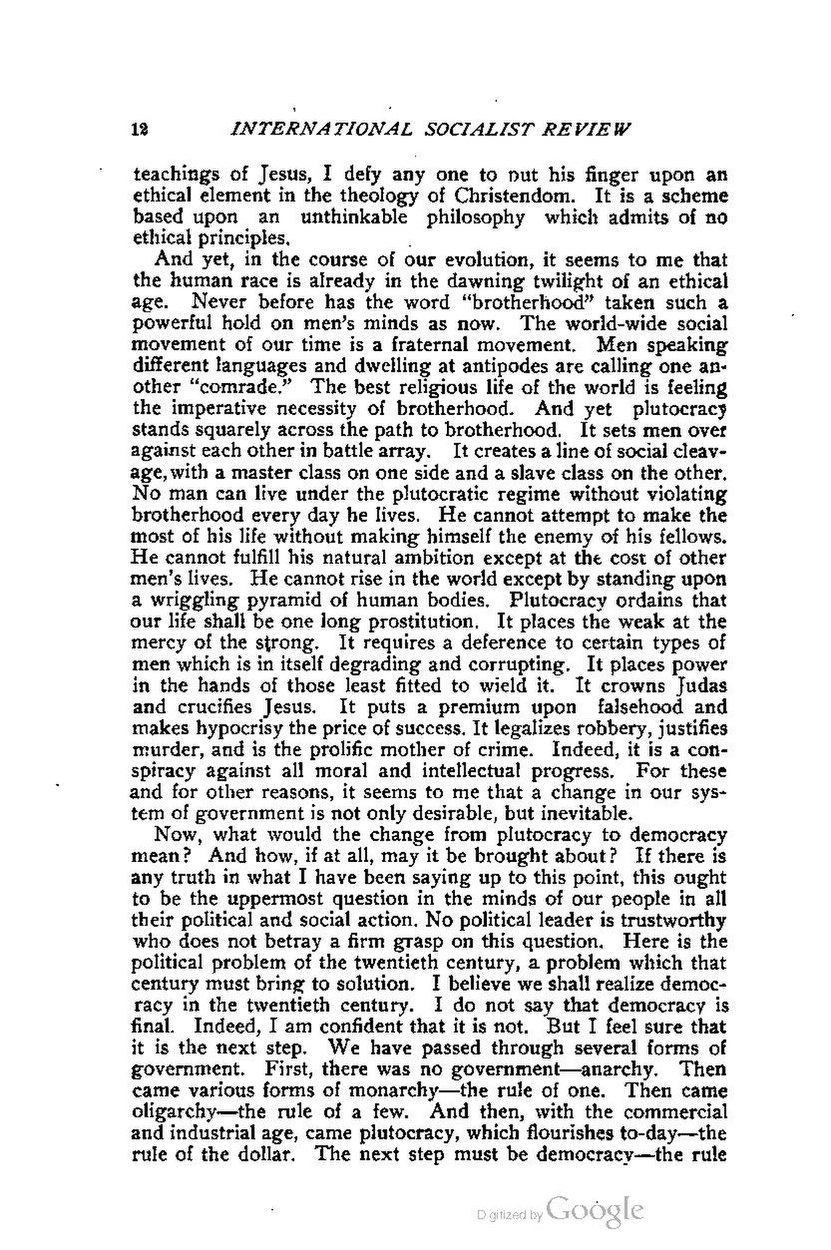teaching of Jesus, I defy any one to put his finger upon an ethical element in the theology of Christendom. It is a scheme based upon an unthinkable philosophy which admits of no ethical principles.
And yet, in the course of our evolutioon, it seems to me that the human race is already in the dawning twilight of an ethical age. Never before has the word "brotherhood" taken such a powerful hold on men's minds as now. The world-wide social movement of our time is a fraternal movement. Men speaking different languages and dwelling at antipodes are calling one another "comrade." The best religious life of the world is feeling the imperative necessity of brotherhood. And yet plutocracy stands squarely across the path to brotherhood. It sets men over against each other in battle array. It creates a line of social cleavage, with a master class on one side and a slave class on the other. No man can live under the plutocratic regime without violating brotherhood every day he lives. He cannot attempt to make the most of his life without making himself the enemy of his fellows. He cannot fulfill his natural ambition except at the cost of other men's lives. He cannot rise in the world except by standing upon a wriggling pyramid of human bodies. Plutocracy ordains that our life shall be one long prostitution. It places the weak at the mercy of the strong. It requires a deference to certain types of men which is in itself degrading and corrupting. It places power in the hands of those least fitted to wield it. It crowns Judas and crucifies Jesus. It puts a premium upon falsehood and makes hypocrisy the price of success. It legalizes robbery, justifies murder, and is the prolific mother of crime. Indeed, it is a conspiracy against all moral and intellectual progress. For these and for other reasons, it seems to me that a change in our system of government is not only desirable but inevitable.
Now, what would the change from plutocracy to democracy mean? And how, if at all, may it be brought about? If there is any truth in what I have been saying up to this point, this ought to be the uppermost question in the minds of our people in all their political and social action. No political leader is trustworthy who does not betray a firm grasp on this question. Here is the political problem of the twentieth century, a problem which that century must bring to solution. I believe we shall realize democracy in the twentieth century. I do not say that democracy is final. Indeed, I am confident that it is not. But I feel sure that it is the next step. We have passed through several forms of government. First, there was no government—anarchy. Then came various forms of monarchy—the rule of one. Then came oligarchy—the rule of a few. And then, with the commercial and industrial age, came plutocracy, which flourishes to-day—the rule of the dollar. The next must be democracy—the rule
